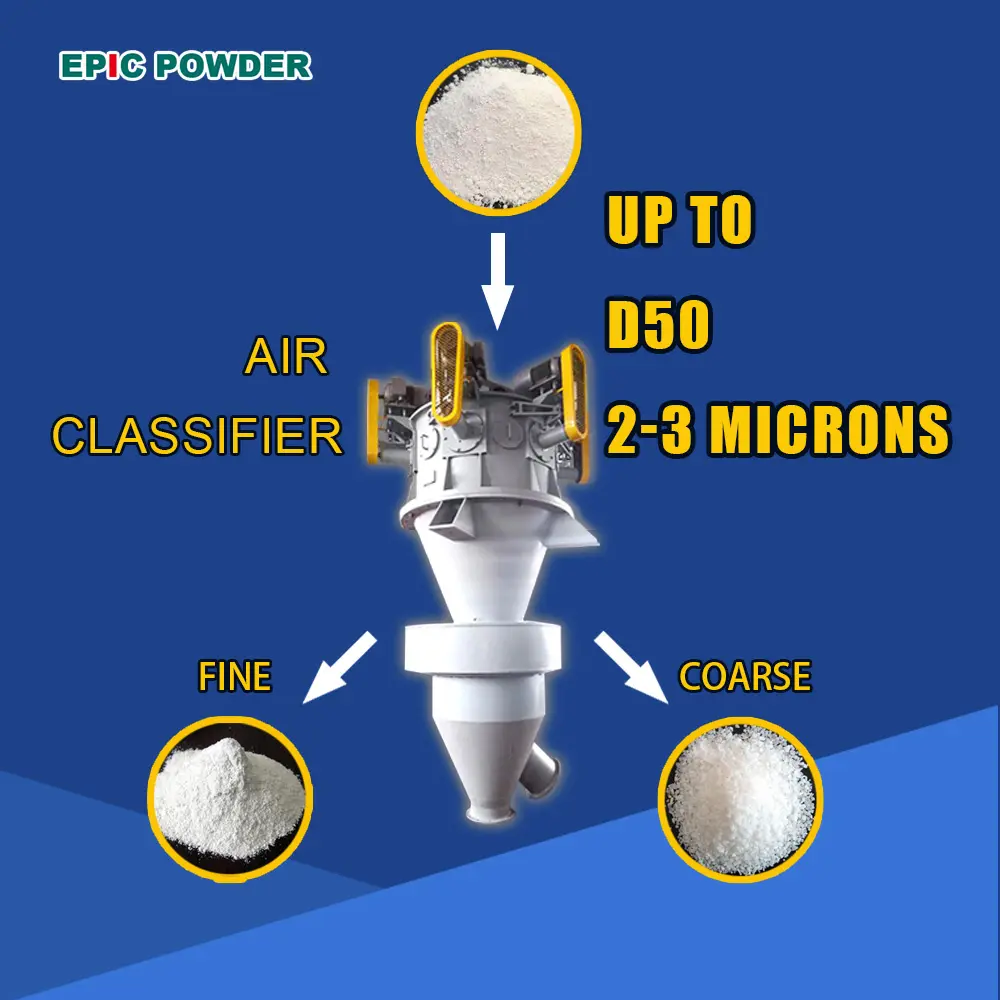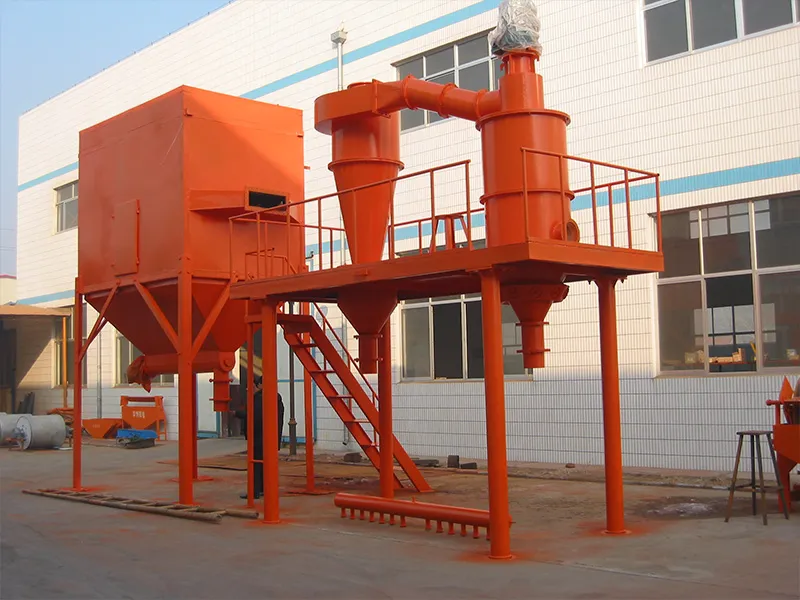Calcium carbonate (CaCO3) is one of the most abundant and versatile minerals found in nature. It occurs in various forms such as calcite, aragonite, and vaterite, each possessing unique crystallographic structures. Primarily derived from limestone, marble, and chalk, calcium carbonate serves as an essential raw material across multiple industries. Its chemical stability, whiteness, and low abrasion make it highly attractive for use in fillers, pigments, and additives. Air classifier milling stands out as a modern solution for producing ultrafine calcium carbonate powders with consistent quality and minimal contamination.

The Role and Applications of Calcium Carbonate
Calcium carbonate plays a pivotal role in a vast array of industrial and commercial applications. In the paper industry, it enhances brightness, opacity, and surface smoothness of paper products. In plastics and rubber manufacturing, it acts as a reinforcing filler improving mechanical strength and reducing production costs.
Moreover, calcium carbonate contributes significantly to the coatings and paints sector by providing opacity and improving finish quality. It is also integral in adhesives, sealants, pharmaceuticals, food processing, and environmental remediation. Given this wide application spectrum, the demand for fine and ultrafine calcium carbonate powders with controlled particle size and morphology is continuously growing.
Market research indicates that the global calcium carbonate market is projected to reach over $30 billion by 2030, with ultrafine powders representing a rapidly expanding segment propelled by innovations in nanotechnology and functional additives.
Why Use Air Classifier Mills for Calcium Carbonate?
Air classifier mills integrate grinding and classification functions, allowing for precise control of particle size distribution in a single, continuous process.
Unlike traditional mills that may cause broad particle size distributions and increased contamination, air classifier mills utilize high-velocity air streams and a dynamic classifier wheel to separate particles effectively. As calcium carbonate passes through the grinding chamber, the rotating classifier wheel separates fine particles from coarse ones, returning oversized particles for further grinding. This closed-loop process ensures the targeted fineness is achieved efficiently.
Furthermore, the air flow used in these mills removes heat generated by grinding, maintaining a low processing temperature. This protects heat-sensitive calcium carbonate powders from thermal alteration and maintains their whiteness and purity.
The flexibility of air classifier mills allows operators to adjust parameters such as classifier speed, airflow rate, and feed rate to customize the particle size according to specific application demands.

Issues to Consider When Using Air Classifier Mills for Calcium Carbonate
When processing calcium carbonate with an air classifier mill, several critical factors must be addressed to ensure optimal performance and product quality.
First, consistent and appropriate feed size is essential. Large or uneven feed particles may reduce milling efficiency and cause classification inaccuracy. Pre-screening or crushing may be required.
Second, moisture content must be controlled strictly. Excess humidity can lead to powder agglomeration, impairing flow characteristics and causing fluctuations in particle size.
Third, contamination risk needs minimizing. Using wear-resistant materials such as ceramic or silicon carbide for classifier wheels and grinding parts reduces metal contamination, which could otherwise affect calcium carbonate’s optical and chemical properties.
Fourth, airflow volume and pressure balance is crucial. Maintaining steady airflow prevents fluctuations in particle separation and ensures uniform product output.
Finally, environmental and safety control measures must not be neglected. Ultrafine calcium carbonate powders pose inhalation hazards and dust explosion risks. Proper dust collection, sealed systems, and ventilation are required to safeguard facilities and personnel.
Issues to Consider When Using Air Classifier Mills for Calcium Carbonate
When processing calcium carbonate with an air classifier mill, several critical factors must be addressed to ensure optimal performance and product quality.
First, consistent and appropriate feed size is essential. Large or uneven feed particles may reduce milling efficiency and cause classification inaccuracy. Pre-screening or crushing may be required.
Second, moisture content must be controlled strictly. Excess humidity can lead to powder agglomeration, impairing flow characteristics and causing fluctuations in particle size.
Third, contamination risk needs minimizing. Using wear-resistant materials such as ceramic or silicon carbide for classifier wheels and grinding parts reduces metal contamination, which could otherwise affect calcium carbonate’s optical and chemical properties.
Fourth, airflow volume and pressure balance is crucial. Maintaining steady airflow prevents fluctuations in particle separation and ensures uniform product output.
Finally, environmental and safety control measures must not be neglected. Ultrafine calcium carbonate powders pose inhalation hazards and dust explosion risks. Proper dust collection, sealed systems, and ventilation are required to safeguard facilities and personnel.

Conclusion and Contact Us
Calcium carbonate is an indispensable mineral used across many industries, and the quality of its powder form is critical to application success. Air classifier milling represent a highly effective technology for producing ultrafine calcium carbonate powders with tight size control, high purity, and preserved functional properties.
At Qingdao EPIC Powder Machinery Co., Ltd., we combine deep technical expertise with cutting-edge air classifier milling equipment to support our clients’ goals of superior powder processing. Our systems are designed to deliver reliable, efficient, and clean production for calcium carbonate and other minerals.
If you are interested in learning more about how EPIC Powder’s air classifier mills can transform your calcium carbonate milling operations, we invite you to contact our experienced team. We are dedicated to providing tailored solutions, technical consultation, and superior service to help you achieve excellence in your powder processing endeavors.

